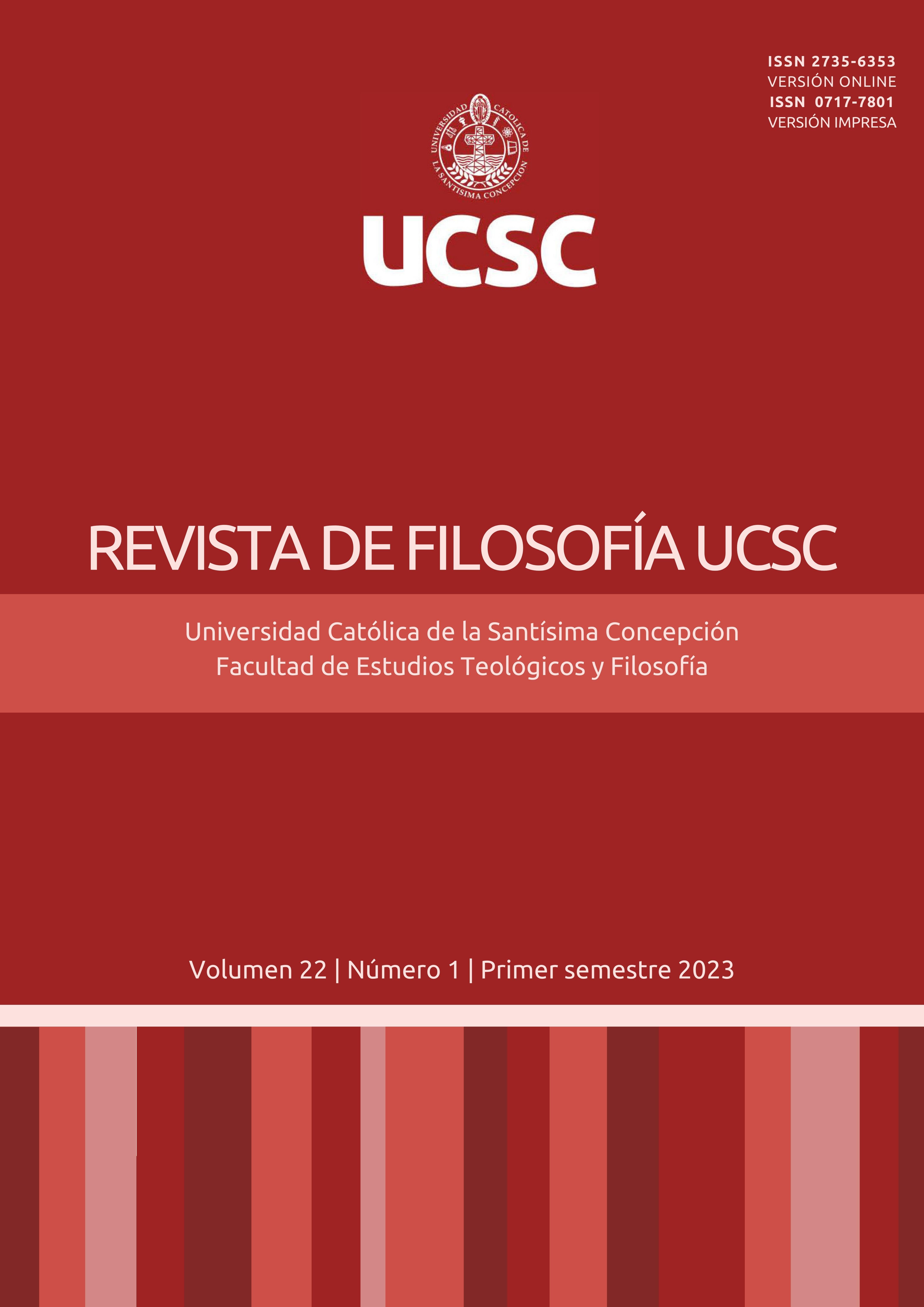Todo el hombre razona: la dimensión implícita de la inferencia en John Henry Newman
Contenido principal del artículo
Resumen
John Henry Newman (1801-1890), quien ha ejercido una enorme influencia intelectual en el desarrollo de la teología católica en los siglos XIX y XX, es menos conocido por sus aportes a la filosofía. Indagando en su obra filosófica por antonomasia, An Essay in Aid of a Grammar of Assent (1870), proponemos delinear la concepción newmaniana de inferencia, mostrando especialmente cómo el autor desarrolla una original propuesta acerca del funcionamiento implícito del razonamiento. A través del examen de nociones como la inferencia informal, la inferencia natural y el sentido ilativo, pretendemos justificar que no son pocos los elementos por los que Newman puede ser considerado plenamente un filósofo, en cuanto contribuye ampliamente a una teoría del conocimiento que rehabilita una razón para la vida y existencialmente contextualizada.
Detalles del artículo
Sección

Esta obra está bajo una licencia internacional Creative Commons Atribución-NoComercial 4.0.
La Revista de Filosofía UCSC es de acceso abierto y no cobra por publicar en ella. Además, regula su política de Derechos de Autor y de acceso a sus archivos de acuerdo con la Licencia Pública Attribution-NonCommercial 4.0 International (CC BY-NC 4.0), por tanto, se permite compartir (reproducir y distribuir el material en cualquier medio o formato) y adaptar (modificar, transformar y crear a partir del material) siempre y cuando se de crédito adecuadamente, se incluya la cita con los datos correspondientes. Además, no está permitido utilizar el material con fines lucrativos.
Cómo citar
Referencias
Newman, J. H. (2014): An Essay in Aid of a Grammar of Assent, Notre Dame: University of Notre Dame Press.
Newman, J. H. (2004): Apologia pro Vita Sua, London: Penguin Books.
Aristóteles (2014): Ética a Nicómaco, [Trad. Julio Pallí Bonet], Madrid: Gredos.
Athié, R. (2001): El asentimiento en J. H. Newman, Pamplona: Servicio de Publicaciones de la Universidad de Navarra.
Cabrero, F. (2001): La «otra» racionalidad: el conocimiento real en la obra de J. H. Newman, Salamanca: Centro de Estudios Orientales y Ecuménicos Juan XXIII.
Casey, G. (1984): Natural Reason: A Study of the Notions of Inference, Assent, Intuition and First Principles in the Philosophy of John Henry Cardinal Newman, New York: Peter Lang.
Cronin, J. F. (1935): Cardinal Newman: his Theory of Knowledge, Washington: The Catholic University of America.
Dessain, Ch. S. (1990): Vida y pensamiento del Cardenal Newman, Madrid: San Pablo.
García, G. A. (2001): ‘J. H. Newman como autor filosófico’, Revista Española de Teología, 61, pp. 505-509.
Gilley, Sh. (2009): ‘Life and Writings’, in Ker, I., Merrigan, T. (eds.), The Cambridge Companion to John Henry Newman, Cambridge: Cambridge University Press, pp. 1-28.
Hochshild, J. (2003): ‘The Re-Imagined Aristotelianism of John Henry Newman’, Modern Age, 45, pp. 333-342.
Jiménez, A. (1992): ‘De la apologética clásica a la teología fundamental: la presencia de John Henry Newman’, in González, A. (ed.), Pasión de verdad: Newman cien años después, el hombre y la obra, Salamanca: Universidad Pontificia de Salamanca, pp. 183-202.
Ker, I. (2010): John Henry Newman, una biografía, Madrid: Palabra.
Morales, J. (2001): ‘J. H. Newman: la pasión de la fe por la razón’, Revista Española de Teología, 61, pp. 457-470.
Newman, J. H. (2014): An Essay in Aid of a Grammar of Assent, Notre Dame: University of Notre Dame Press.
Newman, J. H. (2004): Apologia pro Vita Sua, London: Penguin Books.
Norris, Th. (2009): ‘Faith’, in Ker, I., Merrigan, T. (eds.), The Cambridge Companion to John Henry Newman, Cambridge: Cambridge University Press, pp. 73-97.
Reale, G. (2007): Introducción a Aristóteles, Barcelona: Herder.
Rombold, G. (1993): ‘John Henry Newman (1801-1890)’, in Coreth, E. et al. (eds.), Filosofía cristiana en el pensamiento católico de los siglos XIX y XX, Madrid: Encuentro, pp. 672-701.
Sánchez, F. (2013): ‘El illative sense en la instancia veritativa según John Henry Newman’, Theologica Xaveriana, 63(176), pp. 487-506.
Steinberg, E. (1987): ‘Newman’s Distinction between Inference and Assent’, Religious Studies, 23(3), pp. 351-365.




